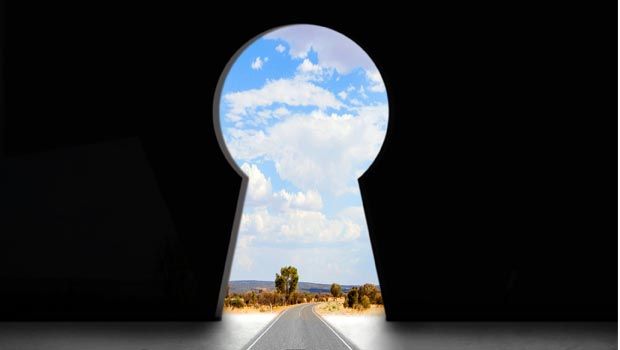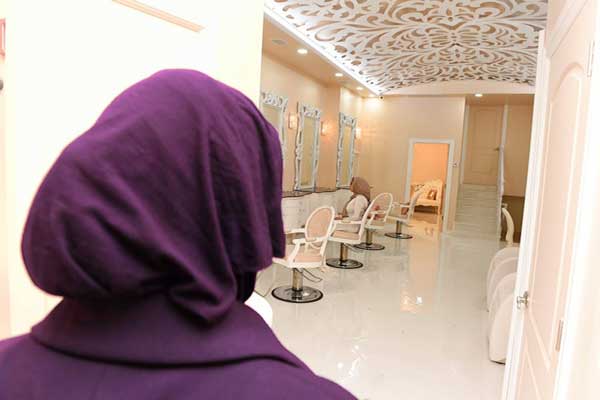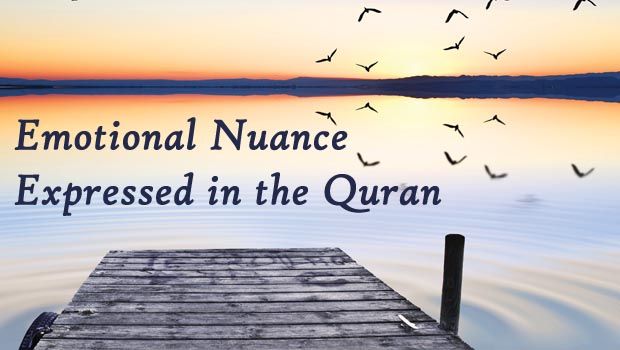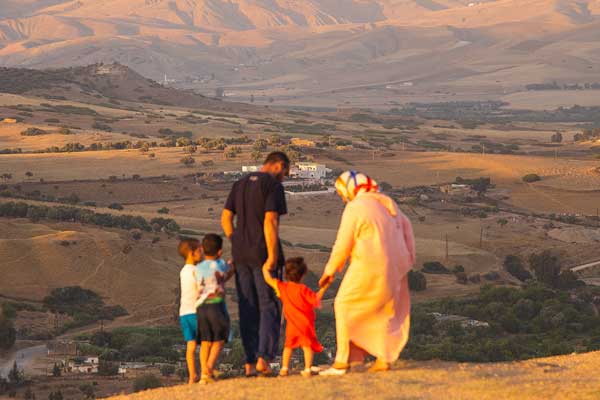Let me begin by defining what Islamic education is and what it means, or should mean, to Muslims. The aim of Islamic education, as defined by the First World Conference on Islamic Education, is to fulfill the first objective in life: to faithfully serve the One who created everything in the universe. Islamic education should aim at a balanced growth of the total personality of the human being. Thus, Islamic schools and colleges should serve and support all aspects of the student’s well-being. This includes the physical, emotional, intellectual, imaginative and inventive, social, moral, and spiritual aspects of being; and the education must motivate the student in a multi-faceted way towards goodness and the attainment of perfection.
Islamic education does not accept a difference between what is religious and what is secular, but looks rather at what is good and what is bad
Thus, through Islamic education, students are well prepared for the challenges they will face as adult Muslims, and the inescapable test to which we are all subjected. Allah SWT says in the Quran, “Blessed is He in Whose Hand is the dominion, and He is able to do all things; Who has created death and life that He may test which of you is best in deed. And He is the All-Mighty, the Oft-Forgiving” (67:1-2). The fundamental drive to seek knowledge comes from the very first revelation to the Messenger Muhammad (peace be upon him), as he is commanded: “Read in the name of your Lord and Cherisher Who created. He created man out of a [mere] clot of clinging substance. Read! And your Lord is most Bountiful. He Who taught [the use of] the Pen, taught man that which he knew not” (96:1-5).
The more we examine this first revelation from Allah SWT, the more we marvel at the greatness of Allah’s Divine Wisdom in commanding man to read as the primary injunction. Indeed, reading as a means of seeking knowledge, attaches to the very foundation of enlightened living, enabling the individual to acquire and deepen his/her understanding of God’s Plan and His commands. Knowledge allows us to differentiate between truth and falsehood, good and evil, light and darkness, guidance and misguidance. But an important distinction must be made: reading in and of itself is a partial prescription. It is reading “in the Name of Your Lord who creates” that brings about the true value of acquiring knowledge and true guidance, as Allah is the source of all knowledge. Hence, the need for Islamic education cannot be over emphasized.
With the command to read and seek knowledge, we also come to realize that Islamic education is comprised of both cognitive understanding and faith. If we remove understanding from belief, we have nothing other than blind faith. Allah SWT constantly challenges us to use our faculties of reasoning to comprehend and understand. In the Quran, Allah SWT poses to us in multiple verses: Do you not understand? Do you not use your intellect? Do you not reflect? In the Quran, no fewer than 50 times Allah asks people to use reason when interpreting physical, social, and other phenomena. For example, Allah SWT says: “And in your own selves, will you not then see (the power of The Creator)?” (51:21). In 23:80 He says: “And it is He Who gives life and causes death, and His is the alternation of night and day. Will you not then understand?” And in 28:71 Allah SWT asks: “Say (O Muhammad SAW): ‘Tell me! If Allah made night continuous for you till the Day of Resurrection, who is a god besides Allah who could bring you light? Will you not then hear?’”
In 47:24 Allah SWT says: “Do they not then ponder over the Qur’an, or are their hearts locked up?” We can go on and on with examples of how Allah SWT challenges man to use his mind and faculties of reasoning to understand Him and reflect on His Creation. On the other hand, without faith, we cannot gain true knowledge. Understanding without faith leads to exploitation. Allah SWT informs us in 10:23: “O mankind! Your rebellion [disobedience to Allah] is only against your own selves, a brief enjoyment of this worldly life, then [in the end] unto Us is your return, and We shall inform you that which you used to do.” When technology is used in accordance with the Will and Pleasure of the Almighty, it brings benefits. But once that intention is removed, technological advance brings greed and exploitation. It destroys. The human being is seen as just a cog in the profit-making machine, comprising a vast supply of demeaned workers, rather than a being created by Allah SWT as vicegerent on earth, charged with fulfilling that amanah (trust). Thus Allah SWT reminds us: “And those who are firmly grounded in knowledge say: ‘We believe in the Book; the whole of it is from our Lord.’ And none will grasp the Message except men of understanding” (3:7). It is with this concept in mind that scholars of the past became the beacons of light when Europe was in its Dark Ages. Scholars such as Al-Biruni, Al-Khawarizmi, Ibn Seena, Ibn Rusd, Ibn Khaldoon, At-Tabari, and Ar-Rhaze, to mention a few, supplied monumental works which have been the sources of light to the Western world in a vast number of disciplines including mathematics, medicine, physics, astronomy, geography, and the social sciences.
Through the correct understanding and approach to Islamic education we come to fully grasp our purpose on earth, which is to serve Allah and to serve humanity. Our Islamic schools are the ideal places to propagate these noble ideals in learning. In this proper educational setting, students are poised to reflect on verses that inspire awe: “Do you not see that Allah sends down water [rain] from the sky, and We produce therewith fruits of varying colors, and among the mountains are streaks white and red, of varying colors and (others) very black; and of men and cattle, in like manner of various colors. It is only those who have knowledge among His slaves that fear Allah. Verily, Allah is All¬-Mighty, Oft¬-Forgiving” (35:28). Through Islamic education, love of the seeking of knowledge can be deeply ingrained in the student so that he or she might become one of the heirs of the Prophets. Abu Darda’ said: “I heard the Apostle of Allah (peace be upon him) say: ‘If anyone travels on a road in search of knowledge, Allah will cause him to travel on one of the roads of Paradise. The angels will lower their wings in their great pleasure with one who seeks knowledge. The inhabitants of the heavens and the earth and the fish in the deep waters will ask forgiveness for the learned man. The superiority of the learned man over the devout is like that of the moon on the night when it is full, over the rest of the stars. The learned are the heirs of the Prophets, and the Prophets leave neither dinar nor dirham, leaving only knowledge; and he who takes it takes an abundant portion.’”
In no uncertain terms we are encouraged to seek knowledge, as reported by Anas (RA) the Prophet on whom be peace said: “Seeking knowledge is incumbent on every Muslim.” Even after death, knowledge benefits the individual. In one hadith narrated by Abu Hurairah, the Messenger of Allah (pbuh) said: “When a man dies, all his actions are cut off from him except three: an ever-recurring charity, knowledge from which benefit is derived, and a virtuous son praying for him” (Muslim). On the other hand, when knowledge is sought for evil purposes, the consequences are severe. Allah’s Messenger (peace be upon him) said: “He who acquires knowledge in order to fall into polemics with other scholars and prove his superiority over them, or to dispute with the ignorant, or to attract the attention of the people, Allah will throw him in the Fire.”
Yet, with all this guidance and emphasis on education, there are still so many diverse attitudes among Muslim communities concerning the kind of knowledge with which we need to equip ourselves. While there are those who are true to the value and spirit of Islamic education, you find:
- there are those who strongly believe that the only true knowledge is knowledge of the Deen which is being taught in the traditional schools, and that there is no place for secular or “non-religious” education
- there are some who strive as a matter of religious duty to provide their children with a good education which they see as simply obtaining an academic degree in order to obtain a good job and good social status
- and some send their children to an Islamic school but really do not bother whether the child practices what he/she has learned
All are sincere in wanting to see their children successful in life: the first is concerned about spiritual success and the second material success. The third is somewhere in between. But unfortunately, they all ascribe to a somewhat limited goal in education. Islamic education does not accept a difference between what is religious and what is secular, but looks rather at what is good and what is bad. We as parents, as teachers, and as a community must embrace the all-encompassing view of Islamic education and strive in our various capacities to fulfill these obligations.
Our collective role is the following:
- To provide the Islamic schools and to ensure they are properly operated and maintained
- To produce the true Islamic approach to knowledge
- To create an environment that reflects an Islamic ideology and its values
- To free our Islamic schools from “Masjid politics”
Our role as parents is the following:
- To send our children to these schools and to support their educational success in the school in any way we can
- To ensure their proper understanding and application of the knowledge they acquire
- To facilitate and support them in practicing their Islamic values at home; and first and foremost to be the best role models, ourselves, in embodying those values
Our role as teachers is the following:
- To help the students to understand that knowledge in Islam is holistic, not divided into secular and religious knowledge
- To educate and mentor wholesome students who are aware, knowledgeable, and refined in all aspects:
- physical
- emotional
- intellectual
- imaginative and inventive
- moral and spiritual
- to motivate students to cultivate all these aspects in striving toward goodness and the attainment of perfection
Our generation should not feel intimidated and subdued, but should be motivated and passionate to discuss new ideas, analyses, and objectives in attempts to address the many critical problems and challenges humanity faces in our contemporary world. Too often we find that Muslim scholars are unable to guide the ummah as to — Islamic alternatives to financial, social, political issues; Islamic guidelines to the ethics of medical and scientific research; the Islamic imperative to protect the earth and the environment, especially in dealing with the pressing issue of climate change, and so on. Mankind, once again, is going through a period of compartmentalizing education, designating separate spheres of the religious and the secular. While many thrive and flourish materially and technologically, they are becoming morally and spiritually dead. It is only through Islamic education that we can truly bring back to humanity the true essence of knowledge, combining faith and understanding. It is only through that process that we can truly fulfill the meaning of “Read in the name of your Lord and Cherisher, Who created…”
As Muslims living in North America, we should feel the responsibility to join in the struggle of finding solutions to the pressing problems of the day, and to implement these solutions for the betterment of ourselves, our families, our communities, and humanity. This we can do. Rather this we MUST do! Indeed, educating our children in a genuinely Islamic way is the foundation upon which the movement can be propelled forward.






